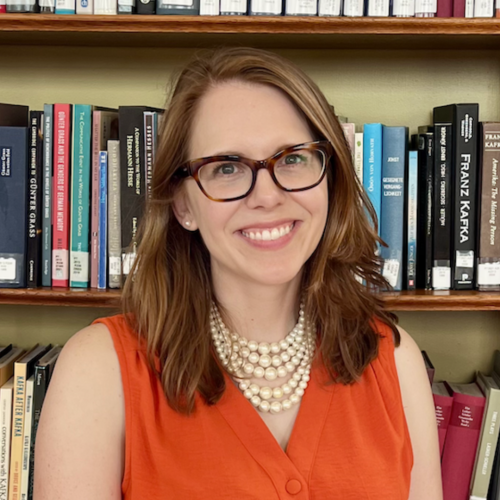Assistant Professor Madelyn Rose Sanfilippo has co-edited a new book, Governing Smart Cities as Knowledge Commons, with Brett M. Frischmann (Villanova University School of Law) and Michael J. Madison (University of Pittsburgh School of Law). The book examines how several cities handle ethical, economic, political, and social issues arising from the cities' technologically advanced statuses.
"Knowledge commons refers to the governance of shared knowledge, information, and data resources among groups of people to sustain and support these knowledge resources over time," Sanfilippo said. "The Governing Knowledge Commons (GKC) framework supports research of the people, practices, and this information, importantly facilitating comparisons–in this case, of practices in different smart cities."
She and her co-editors have studied a series of cities, public-private partnerships, and public spaces to understand how their governance has succeeded or failed; how the communities decided upon what is appropriate use of data on citizens; and how the communities resolved dilemmas about the public use of technology.
"We learn a lot from comparisons across these case studies about instances in which data and technology can improve quality of life or specific experiences, such as thinking of ways in which sensors can monitor water supplies or enhance bike or pedestrian safety. We also learn a lot about how data and technology can infringe upon privacy and autonomy or reinforce discrimination.
"We want to use this research to help decision makers improve choices about and management of data and technology that aligns with what benefits their communities and what those communities actually want," she said.
The researchers found that there is no one-size-fits-all answer for establishing technological governance in individual cities and communities. However, it's recommended that individual cities negotiate with their stakeholders and resolve policy issues before putting technological advances into action.
"Different communities have different preferences, politics, histories, and relationships to civil services; they don't all want or need the same things," Sanfilippo said. "This book shines a light on some of these patterns, allowing us to identify which governance dilemmas communities should resolve before deploying new data collection or automated systems. In this sense, the book is aimed not just at academics, but also people who want to gain perspective on the changes going on all around them in public spaces."
In addition to monitoring smart cities' projects as they evolve, Sanfilippo said she and her co-editors plan to help communities think through their decisions. They have organized an ongoing speaker series involving researchers, students, and practitioners from cities and industries supporting smart cities' projects.
Sanfilippo's research empirically explores governance of sociotechnical systems as well as outcomes, inequality, and consequences within these systems. She earned her MS and PhD in information science from Indiana University.
The book is available through Open Access.
